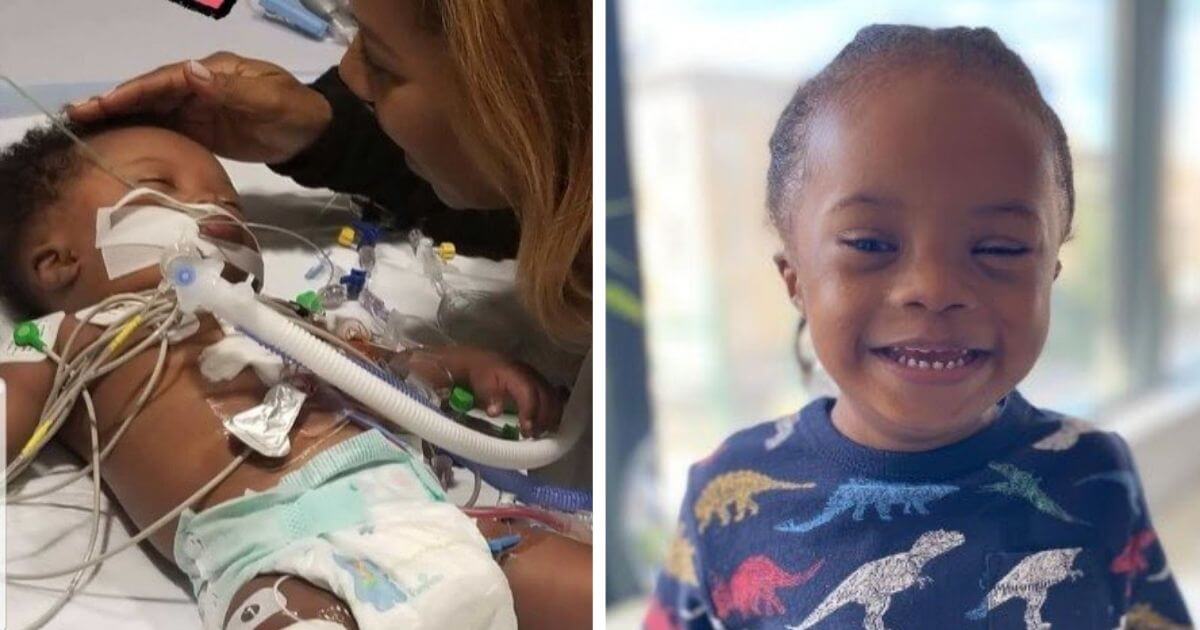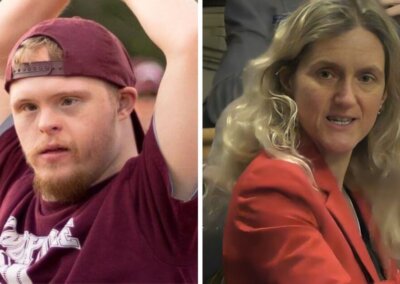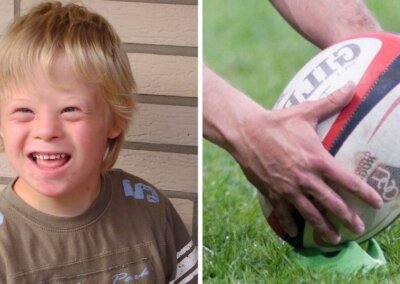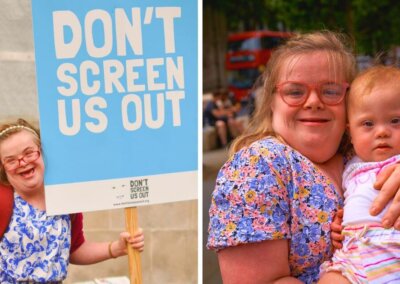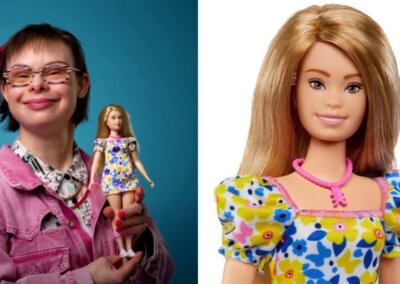A mother who was repeatedly pressured to have an abortion after her baby was prenatally diagnosed with Down’s syndrome has spoken of her joy at keeping her baby.
Two years later, Noah is capturing the hearts of tens of thousands of people around the world.
Sharing her ordeal with the Metro, Yami Johson said: “When doctors told me [about the diagnosis] they made it sound like bad news, they made it seem like such a terrible thing. They offered me termination and reminded me I had that option every week until I passed the last date.
“They even scheduled an appointment to discuss a termination without my consent.”
She added. “I felt like the life of my child was not supported and I felt pressurized to terminate. It’s really sad that I was almost convinced to abort because Noah lives a happy and healthy life.”
Despite growing pressure to terminate the pregnancy, Johnson persisted, giving birth to Noah on 27 January 2018 in Brooklyn, New York.
After his birth, he was diagnosed with further complications, including a congenital heart defect, lung disease, sleep apnea, and kidney problems.
But, after two heart surgeries, Noah is expected to live a relatively normal life.
When speaking of her son’s medical conditions, Johnson explained that she has been continuously delighted by the joy and affection he shows every day.
“Having Down syndrome is not the end of the world and it’s not a curse or a punishment, it’s actually a blessing. It’s what makes Noah special and we see it as something good rather than something bad.”
‘‘A lot of parents with a down syndrome kid will agree with me when I say having Noah like he is, is the best thing that’s ever happened to me… having Noah has given me a new perspective on life. He’s taught me to slow down and enjoy the little things in life.
“Having a baby like Noah is a blessing.”
Supporting expectant mothers
To keep her family and friends updated on Noah’s life and progress, his mother set-up an instagram account, documenting the everyday moments of having a child with Down’s syndrome.
The account quickly garnered attention, capturing the hearts of over 80,000 people across the world.
“I just post photos of our everyday life, most of it is just cute and funny photos of Noah but I also use it to educate our followers about the condition. I wish I had found a page like Noah’s when I was researching about Down syndrome when I was pregnant,” Yami said.
“This is my way of getting across what it’s actually like to have a Down syndrome child. I want to show off our positivity and I know it has helped a lot of moms and dads come to terms with their own situation.”
Scale of Down’s syndrome abortions
Yami and Noah are not the only victims of a culture that promotes disability-selective abortion. In the UK, there were 3,183 disability selective abortions across England & Wales in 2019, with 656 of those occurring following a prenatal diagnosis of Down’s syndrome.
However, the figures are likely to be much higher.
In a 2013 review on disability-selective abortions, it was revealed 886 babies were aborted for Down’s syndrome in England and Wales in 2010, but only 482 of these were reported in official Department of Health records.
The underreporting was confirmed in 2014 in a Department of Health review.
There has also been an increase in the number of abortions of babies prenatally diagnosed with Down’s syndrome since the introduction of new prenatal screening tests.
Figures published last year show that the number of babies born with Down’s syndrome in the UK has dropped by 30% in NHS hospitals that have introduced the new non-invasive prenatal tests.
Parents under pressure to terminate pregnancies
The pressure to abort babies prenatally diagnosed with Down’s syndrome is a problem in the UK and around the world.
A recent report revealed that throughout the UK pregnant mothers who refuse to abort their children with Down’s syndrome are being pressured by some medical professionals to change their decision.
One mother, whose child is now three-years-old, said medical professionals told her they could leave her baby with Down’s syndrome to die if it was struggling after birth.
Another mum told how even at 38 weeks pregnant she was being offered an abortion.
Earlier this year in Australia, alarming testimonies were heard by Australia’s Royal Commission into Violence, Abuse, Neglect and Exploitation of People with Disability as it began a two-week hearing on how individuals with a cognitive disability experience healthcare in the country.
Toni Mitchell, from Toowoomba, says she’s had to continually justify the life of her son Joshua, who has Down’s syndrome and autism, to healthcare professionals.
After being told she was having a boy, a senior doctor told Toni it was highly likely her baby would have Down’s syndrome and could miscarry within several weeks.
While Toni was still crying the man said, “Here’s your appointment for a termination”, she said, and he gave her a piece of paper.
“In that moment, they completely disallowed his life. They said he wasn’t worth living.”
Toni told the commission that she threw the paper in the bin.
Rebecca Kelly, whose son Ryan has Down syndrome, told the Commission that in the model of Australia’s health system “if you can’t cure it … then you eradicate it.”
“If you think that person’s life is a tragedy and that they suffer from this condition then you start to believe that it’s an act of kindness or that it’s a responsible act to do all you can to prevent that birth, and that becomes quite coercive,” she added.
However, like Toni experienced, Rebecca revealed the problems didn’t end with abortion pressure.
Rebecca stated: “if you have a doctor [who] thinks that possibly your life’s going to be a little bit better if your child doesn’t make it because they’re taking that burden away from you, that has horrible implications for the level of care that you don’t get.”
Legal challenge
Last week it was announced that The High Court in London will hear a landmark case against the UK Government over the country’s discriminatory abortion legislation.
Currently in England, Scotland and Wales, the law singles out babies with disabilities such as cleft lip and club foot and Down’s syndrome and allows terminations right up to the point of birth. However, there is a 24-week time limit for most abortions that are carried out when a baby does not have a disability.
Heidi Carter, a 25-year-old woman with Down’s syndrome, and Máire Lea-Wilson, whose sixteen-month-old son Aidan also has the condition, both believe this is “deeply offensive” and have joined forces to challenge the law.


